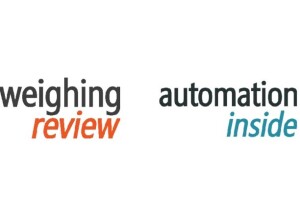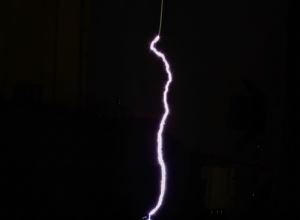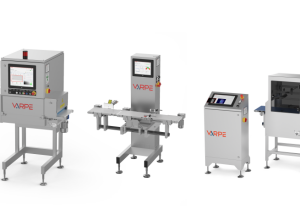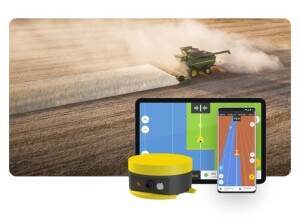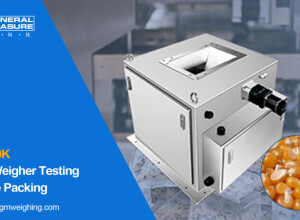How Digital Certificates Are Modernizing Calibration and Compliance
Calibration certificates have long been the cornerstone of measurement credibility. Traditionally, these were paper-based documents stored in binders or scanned into quality management systems. Today, with the digitalization of metrology, Digital Calibration Certificates (DCCs) are transforming how weighing systems prove compliance, traceability, and accuracy. They deliver authenticity, automation, and interoperability across the global weighing ecosystem.
What Is a Digital Calibration Certificate?
A Digital Calibration Certificate (DCC) is an electronically generated and cryptographically signed document that provides all relevant calibration data in a machine-readable format. Unlike scanned PDFs, a DCC can be automatically imported, verified, and archived by weighing software, ERP systems, or regulatory authorities.
- Authentic: Signed with a digital signature that verifies origin and integrity.
- Machine-Readable: Encoded in XML or JSON for system interoperability.
- Traceable: Linked directly to national or international standards.
- Secure: Protected by encryption and timestamping technologies.
Benefits of Digital Certificates
Moving from paper to digital certification delivers measurable improvements in accuracy, efficiency, and compliance control.
- Instant Verification: Automatic validation of authenticity via public-key infrastructure (PKI).
- Data Integrity: Prevents unauthorized modification (secure data transmission).
- Process Automation: Calibration results can update weighing software or ERP systems automatically (MES–ERP integration).
- Audit Efficiency: Simplifies compliance checks and renewals.
- Environmental Benefits: Eliminates paper and manual handling.
Structure of a Digital Certificate
A typical DCC follows international templates under development by organizations such as EURAMET, PTB, and BIPM. It contains structured fields that allow for automated processing.
- Header: Identification, calibration laboratory, and unique certificate ID.
- Calibration Data: Measured values, uncertainties, and conditions.
- Traceability Links: References to national or international standards (traceability chains).
- Digital Signature: X.509 certificate-based signature ensuring authenticity.
- Metadata: Environmental conditions, instrument serial numbers, and responsible personnel.
International Standards and Frameworks
- ISO/IEC 17025: Defines competence and traceability requirements for calibration labs.
- OIML D31: Regulates software-controlled measuring instruments.
- WELMEC 7.2: Covers software and data integrity in legal metrology.
- EURAMET DCC Framework: Establishes a standard structure for machine-readable certificates.
Integration in Modern Weighing Systems
Digital certificates are increasingly embedded in industrial weighing ecosystems, enabling seamless verification and compliance management.
- Direct Upload: Calibration instruments generate DCCs directly into cloud repositories.
- Automatic Linking: Weighing terminals attach the current certificate to every measurement record.
- System Validation: Software automatically checks calibration status before operation (GAMP 5 validation).
- Blockchain Verification: Immutable storage ensures tamper-proof compliance (blockchain verification).
Cybersecurity and Authentication
Digital signatures form the backbone of certificate trust. Using PKI (Public Key Infrastructure), each certificate can be verified by comparing its signature against a trusted authority. This ensures that calibration data has not been altered after issuance.
- TLS Encryption: Secures the transmission of DCCs across networks.
- Revocation Lists: Prevents use of expired or compromised certificates.
- Access Control: Only authorized personnel can sign or download calibration data.
Adoption Across Industries
- Pharmaceuticals: Streamlined audits and reduced documentation errors.
- Food and Beverage: Real-time verification of hygienic scale calibration.
- Manufacturing: Integration with predictive maintenance platforms.
- Transportation: Verified truck and weighbridge calibration for trade compliance.
Best Practices for Implementation
- Select calibration providers that issue XML- or JSON-based DCCs.
- Ensure weighing terminals can read and verify DCC formats.
- Integrate DCC data with MES, ERP, or QMS platforms for automation.
- Adopt secure data exchange standards (TLS 1.2+, PKI validation).
- Regularly audit certificate authenticity and validity.
Future Outlook
The future of compliance lies in fully automated, interconnected calibration ecosystems. As generative AI documentation tools and edge gateways mature, calibration data will flow securely from the instrument to regulatory databases — with zero human intervention. Digital certificates will not only prove compliance but become active elements in real-time quality assurance and predictive analytics.
Related Articles
- Global Traceability Chains: Ensuring Data Integrity from Sensor to Certificate
- Secure Data Transmission in Industrial Weighing Networks: TLS, MQTT, and Beyond
- How to Validate Weighing Software Under GAMP 5 and IEC 62304














